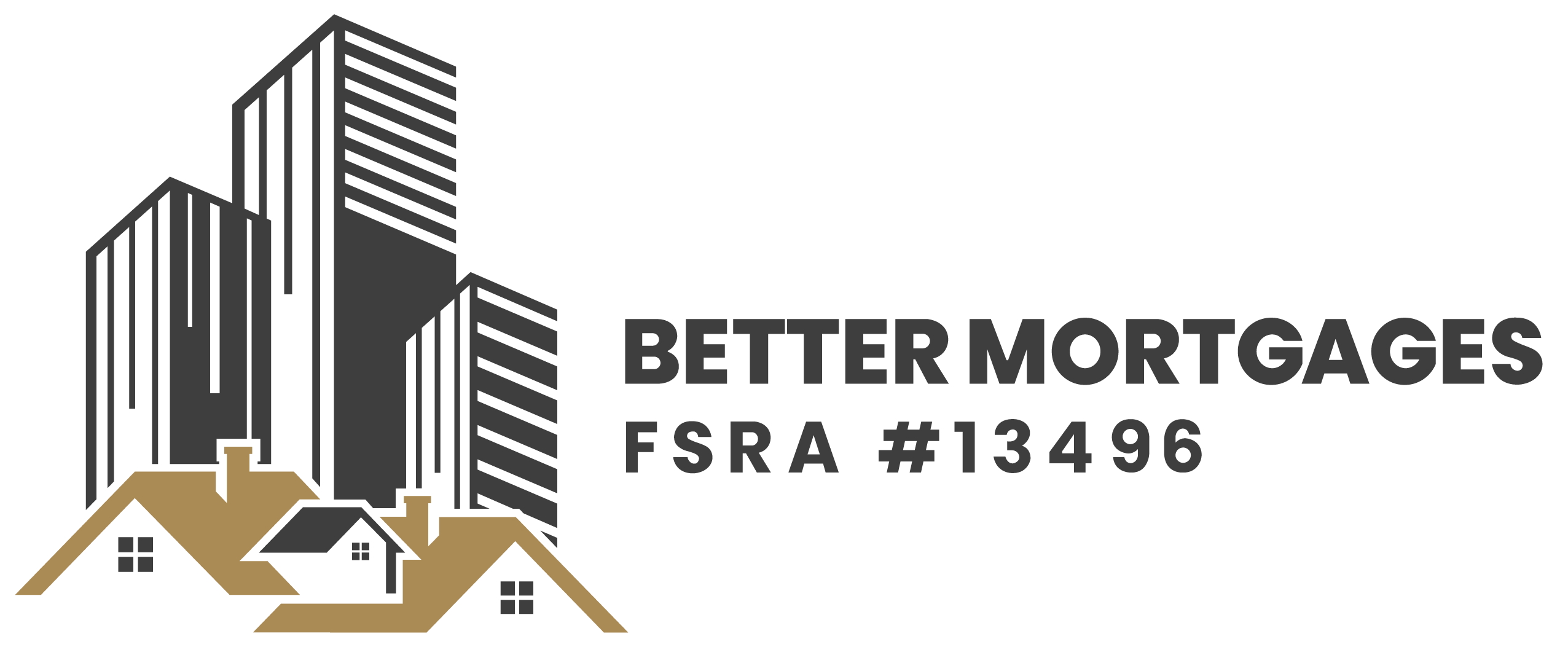Pre-Payment Privileges & Penalties
Flexibility That Fits Real Life
At Better Mortgages, we believe your mortgage should evolve with you. Whether you’re planning to pay off your mortgage faster or make changes to your loan structure, knowing your pre-payment options and potential penalties can save you both money and stress down the road.
Life rarely follows a straight line—your mortgage should be flexible enough to pivot when you need it to.
Common Reasons You May Want to Adjust Your Mortgage
Things change. Whether you’re changing jobs, growing your family, or coming into extra cash, you may want to:
- Increase your regular mortgage payments
- Make a lump sum payment toward your principal
- Change your payment frequency
- Refinance your mortgage to access equity or secure a new rate
- Transfer your mortgage to a new lender
- Pay off your mortgage early
Knowing what’s possible (and what it may cost) can empower you to make the best decisions for your financial future.
Understanding Mortgage Types and Their Flexibility
Open-Term Mortgages
- Maximum flexibility. You can make extra payments or pay it off entirely without penalty.
- Drawback: Typically come with higher interest rates.
- Maximum flexibility — ideal for those who value freedom and anticipate changes in their financial situation.
- No prepayment penalties: You can make lump sum payments, increase your regular payments, or pay off the entire mortgage at any time without incurring fees.
- Great for short-term needs: Suitable for homeowners planning to sell their property, refinance, or pay off their mortgage soon.
- Adaptable to changing income: Perfect for self-employed individuals, commission-based earners, or those expecting bonuses, inheritances, or large cash infusions.
- Avoids long-term commitment: Offers a practical solution when you’re unsure how long you’ll stay in the home or want to avoid locking into a fixed term.
- Drawback – higher interest rates: This flexibility usually comes at a cost, as open mortgages tend to have higher interest rates compared to closed-term options.
Closed-Term Mortgages
- You’re committed to a specific rate and term (often 5 years).
- Benefit: Lower rates than open mortgages.
- Limitation: Making changes before your term ends could trigger penalties.
- Some closed mortgages allow extra payments up to a certain percentage annually, helping reduce your principal faster—without penalties.
- Fixed-rate closed mortgages provide consistency, making it easier to budget long-term.
- You may be able to transfer your mortgage to a new property if you move, avoiding penalties.
- Variable-rate closed mortgages typically have smaller penalties for breaking the term compared to fixed-rate options.
- Best suited for borrowers with stable income and long-term plans who don’t anticipate needing changes during the term.
Within closed-term options:
- Fixed-rate mortgages give you rate stability but often carry higher penalties for early changes.
- Variable-rate mortgages usually have lower penalties but come with rate fluctuation risks.
Key Pre-Payment Privileges You Should Look For
Extra Payment Options
Most lenders allow annual increases to your regular payments—anywhere from 5% to 100% (a “double-up” option). These extra payments go straight toward your principal and reduce interest over time.
Lump Sum Pre-Payments
Many lenders permit you to make annual lump sum payments of 5% to 20% of your original mortgage amount—without penalty. These payments also go directly to reducing your principal.
Payment Schedule Adjustments
Switching from monthly to accelerated bi-weekly payments can shave years off your amortization. Some lenders allow this freely, while others charge fees or prohibit it.
Recasting (Re-Amortizing) Your Mortgage
This lesser-known option allows you to reduce your regular payments after making a lump sum pre-payment, without refinancing. Not all lenders offer it, but we work with partners who do.
The Fine Print: Potential Penalties
Early Payout Penalties
Variable-Rate Mortgages
Typically subject to a penalty equal to 3 months of interest.
Fixed-Rate Mortgages
What’s the IRD?
- Your original mortgage rate
- The posted rate for a similar remaining term
- Your outstanding balance
Other Possible Fees
Legal and discharge fees
Appraisal or
administrative costs
Hidden penalties tied to "ultra-low" rate products
Beware the Strings Behind “Too Good to Be True” Rates
Some discounted mortgage products include restrictive clauses like bona fide sale conditions, which limit your ability to exit the mortgage early—even if you sell your home. Others may inflate penalties or include non-transparent fees.
At Better Mortgages, we ensure you know exactly what you’re signing up for. We’ll help you compare mortgage products with a lens on both cost and flexibility—because your future deserves options, not limitations.




